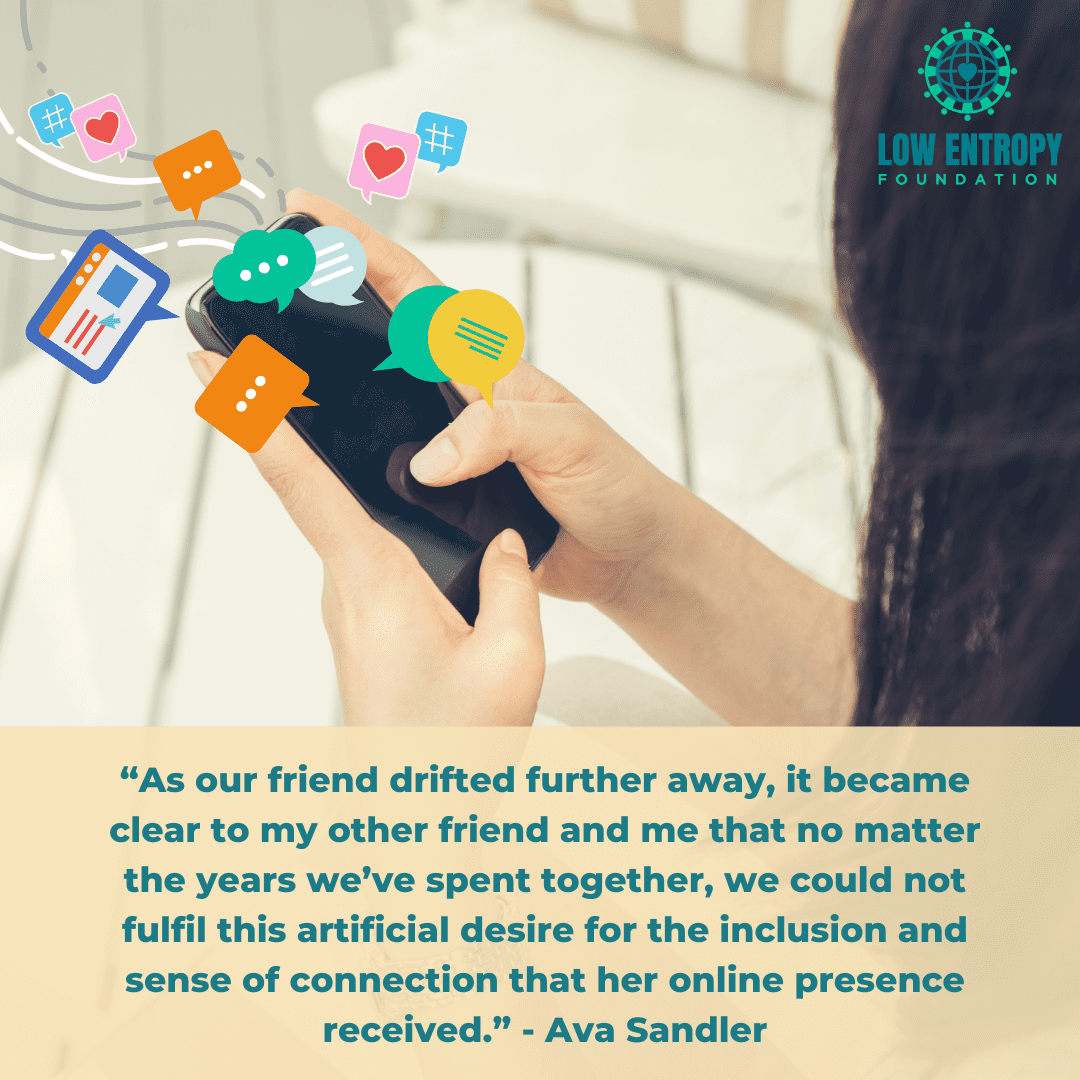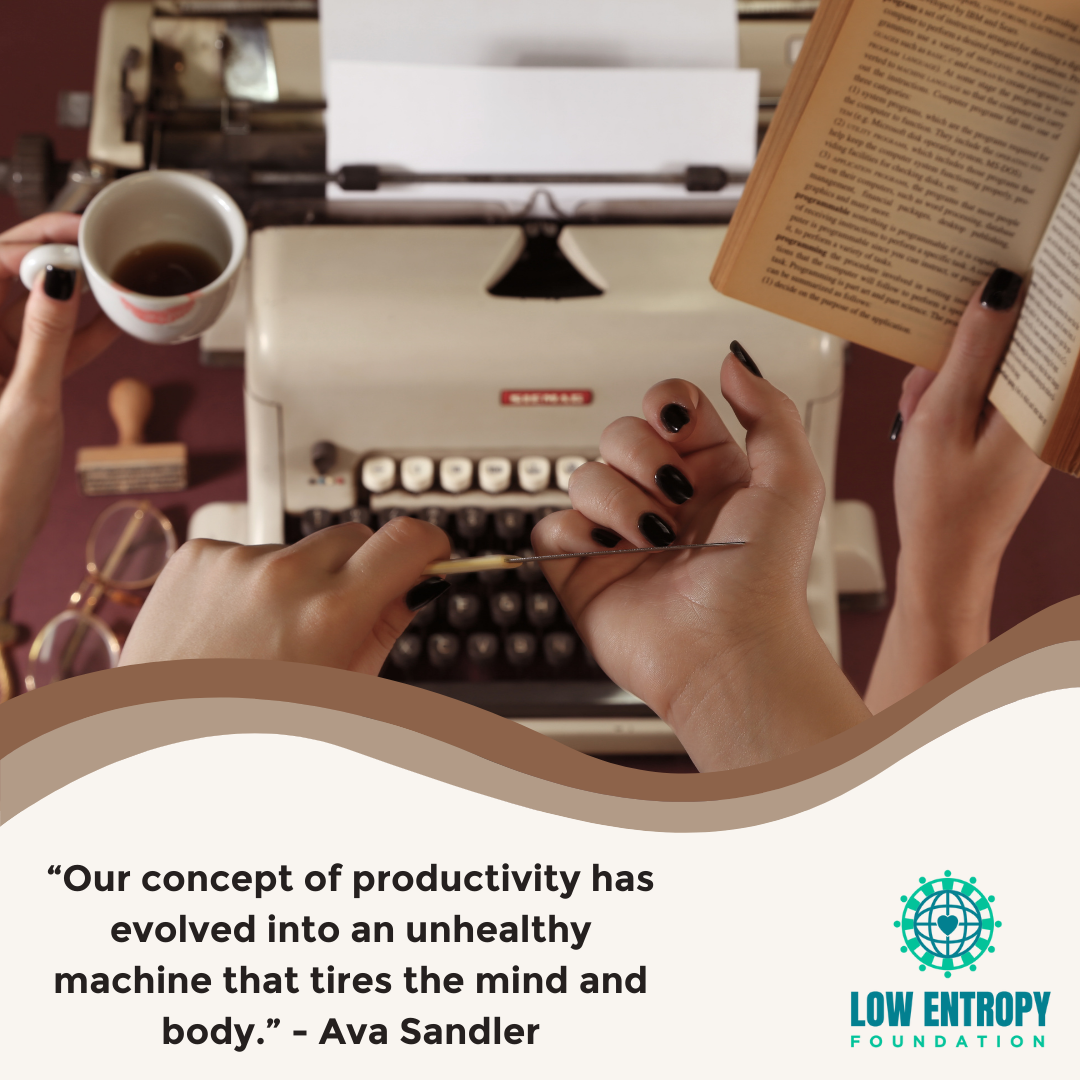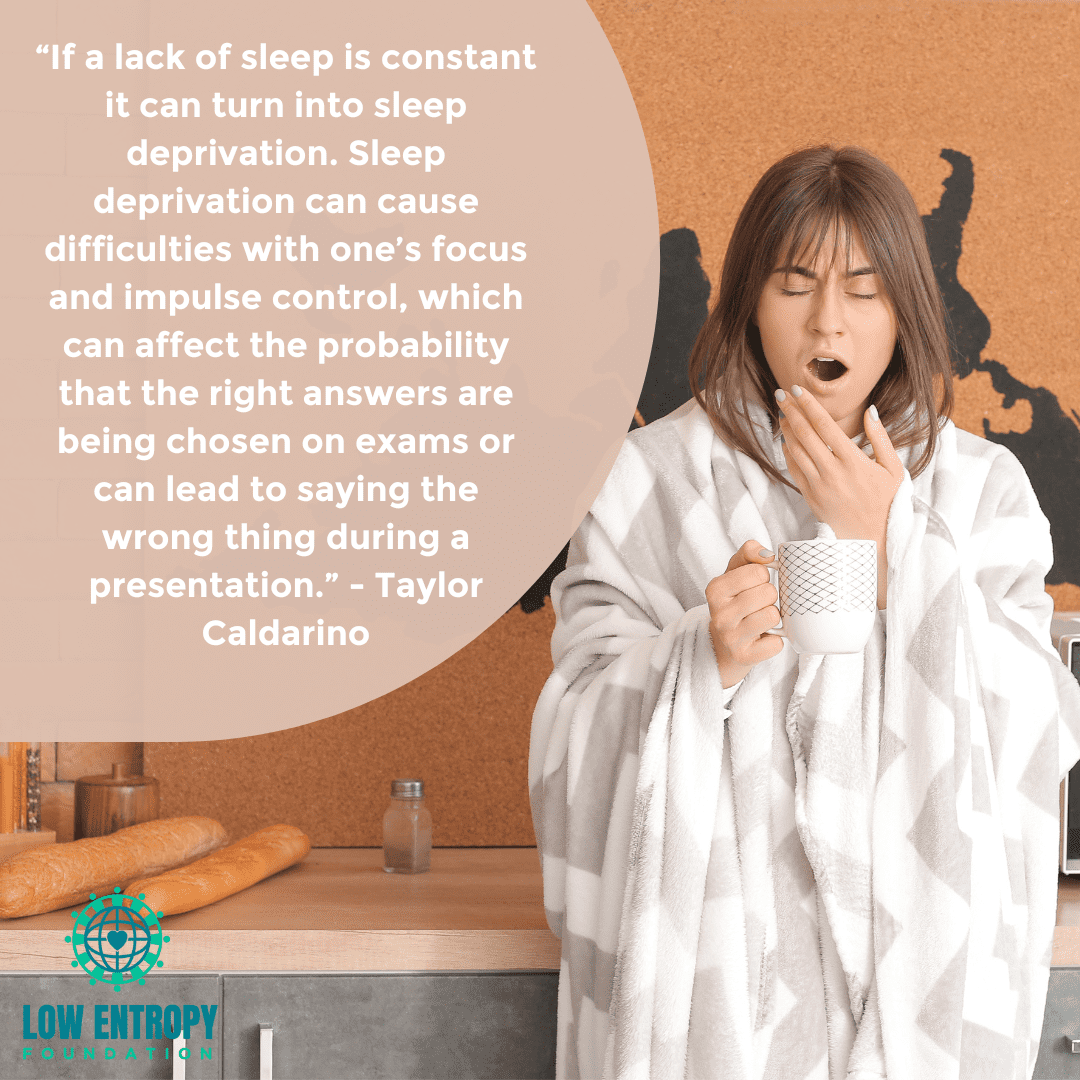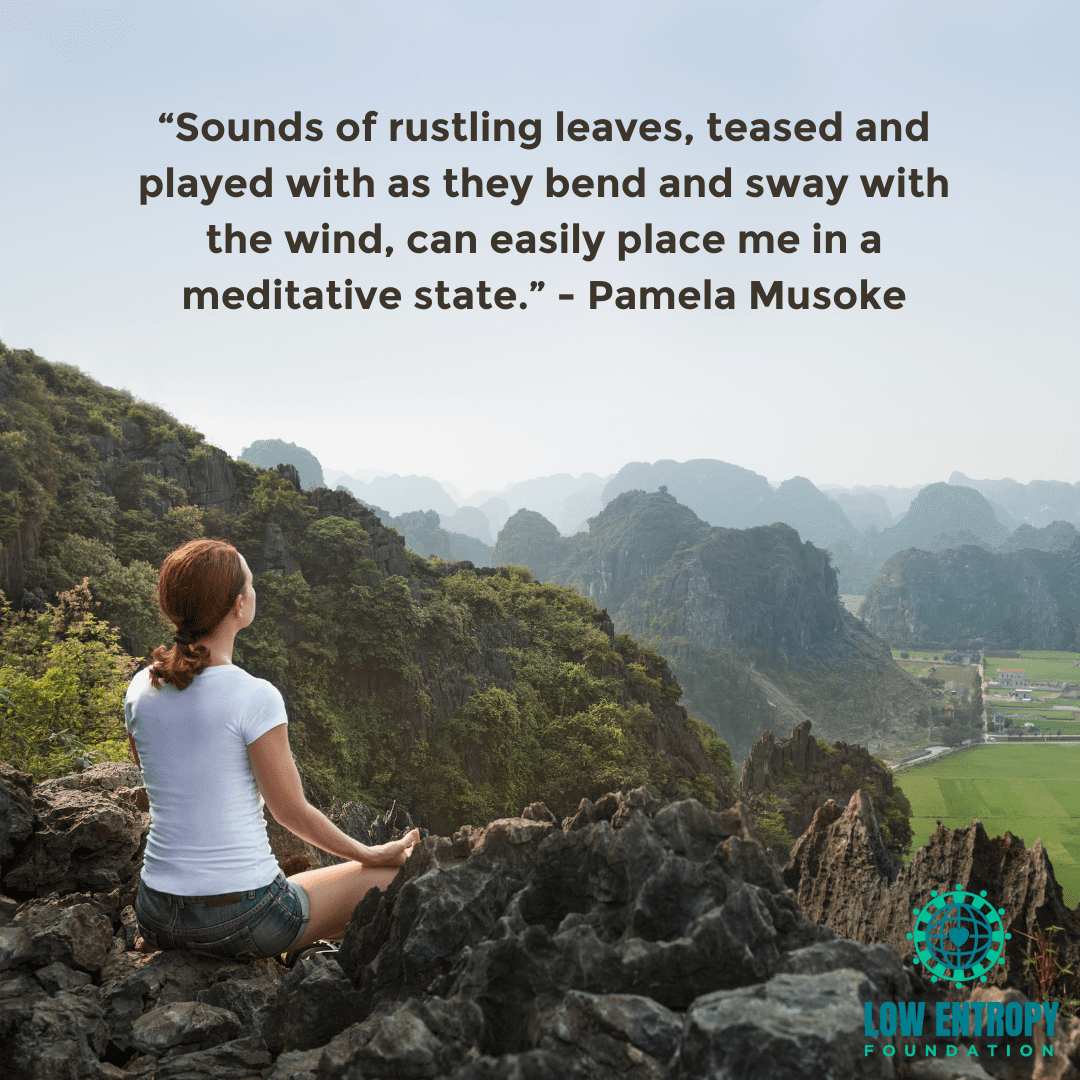Disconnect to Connect: Rediscover Emotional Connection
July 18, 2021

Low Entropy Volunteer Writer Ava Sandler reminds us of the importance of connecting with the physical communities and environments that exist outside of our digital screens.
In an age of increasing technological prevalence, isolation and superficial connection prevail. I recently read Kazuo Ishiguro’s novel Klara and the Sun, and I found it to be a beautiful exploration of love and loneliness, and authenticity and superficiality, amid striking technological advancement. Throughout the novel, undercurrents of darkness and subversion permeate its core as Ishiguro quietly observes the importance of human connection and compassion. Although he allows both the human and the artificial intelligence narratives to flourish, gentle understanding seeping into the depths of each character, he carefully accentuates the unparalleled and inimitable nature of the human condition through his exploration of technology’s offerings: both its astounding contributions and its grave limits. But most compelling is Ishiguro’s consideration of our primal return to nature and human connection for
our ultimate survival, despite our psychological dependency on and fascination with technology.
Our desire for technology to satisfy our need for connection and inclusion is reflected in our online presence. As shallow interactions flourish amid a depthless sea of faceless icons, emotional connection wanes. I recently read an article that meditates on this very concern, wherein the writer asks, “Do we want to go deep or wide?” Although our ever-growing networks have allowed us to connect with more communities than we ever thought possible, in one respect or another, we need to question the nature and sustainability of this connection and the degree of profundity and sincerity it can offer.
I had initially intended to discuss statistical studies throughout this article, but I find reminiscences a more embraceable and inviting approach. For several years now I’ve casually observed and explored the impact of our online activity on emotional connection. Although I’ve read countless studies, my most critical period of contemplation arrived through an in-person interaction with my peers. A vague and faraway memory though it is, my mind continues to revisit this noontime recollection.
I and two of my close friends had just arrived at our usual lunchtime destination, and we were settling in to hungrily consume our cold sandwiches. By way of habit, one of my friends escaped into her phone, once more immersed in the lives of distant friends. Jokingly, my other friend and I stole one half of her sandwich, hoping to draw her attention back to our conversation. But our friend remained ignorant of our feeble attempts to reawaken her mind to our presence. In the moment, I felt only anger and frustration at her inattention and indifference to our tangible company. But years later, these feelings have dissipated to be replaced by realization: My friend was slipping further and further away, into a place—a mentality—I could not reach.
Although my other friend and I masked our behaviour as a mere joke, a display of comical mockery at the predictability of our friend, it was more deeply a desperate attempt to reconnect emotionally with her. Despite her physical presence, her mind was elsewhere, longing for a taste of the thrill, the stimulation, that her cellular device unfailingly offered and her two tangible friends could not likewise simulate. Although such stimulation was in part fuelled by the psychological rewards of the platforms our friend frequented (the “likes,” the comments)—and the platforms I and my other friend were also connected to at the time—she was most attracted to the ever-expanding network of peers the platforms allowed her to curate, and the superficial popularity she thus received. As our friend drifted further away, it became clear to my other friend and me that no matter the years we’ve spent together, we could not fulfil this artificial desire for the inclusion and sense of connection that her online presence received.
The other day I approached my friend (whom I’ve been referring to as the “other friend”) about this recollection, and invited her opinion on the matter. What struck me most powerfully about our conversation was the indelible impression this incident had made on her. Despite its seemingly trivial and colourless nature, she too remembered it vividly. In fact, we both remarked on how it haunts our memory. But why this specific memory? I’ve come to find that it not only invokes past emotions of longing and loss, but embodies the heavy consequences that have begun, and will continue, to accompany this fresh age of technological connection and dependence.
Although our technological advancements have introduced us to a fantastical realm of astonishing, unparalleled potential, we need to recognize and embrace the tangible in order to rediscover one another and the natural world. We no longer control our technological innovations; the power they possess prevails over the human condition. I visualize a boundless bubble shrouding Earth, invisible to its inhabitants, but a string-master, casting a possessive, elusive and ever-present influence as it guides its puppets. To regain a sense of meaningful and impactful connection and community, we must disconnect and surrender ourselves to the unruly and unpredictable, to nature and physical presence.
How many sandwiches do you figure you could steal from people who are engrossed in their phones on any given day? Half a dozen? More? Let us know in the comments below or on any of our social media channels . . . and then hang out with some friends in person!
GET INVOLVED
At Low Entropy, we believe changing the world starts with changing ourselves.
Founded in 2015, Low Entropy Facilitates conversations that encourage diversity and promote inclusivity.
We understand that life can be confusing at times. It can seem challenging and sometimes you may feel like no one really “gets you.” We offer an opportunity to connect with others who have the capacity to understand you.









